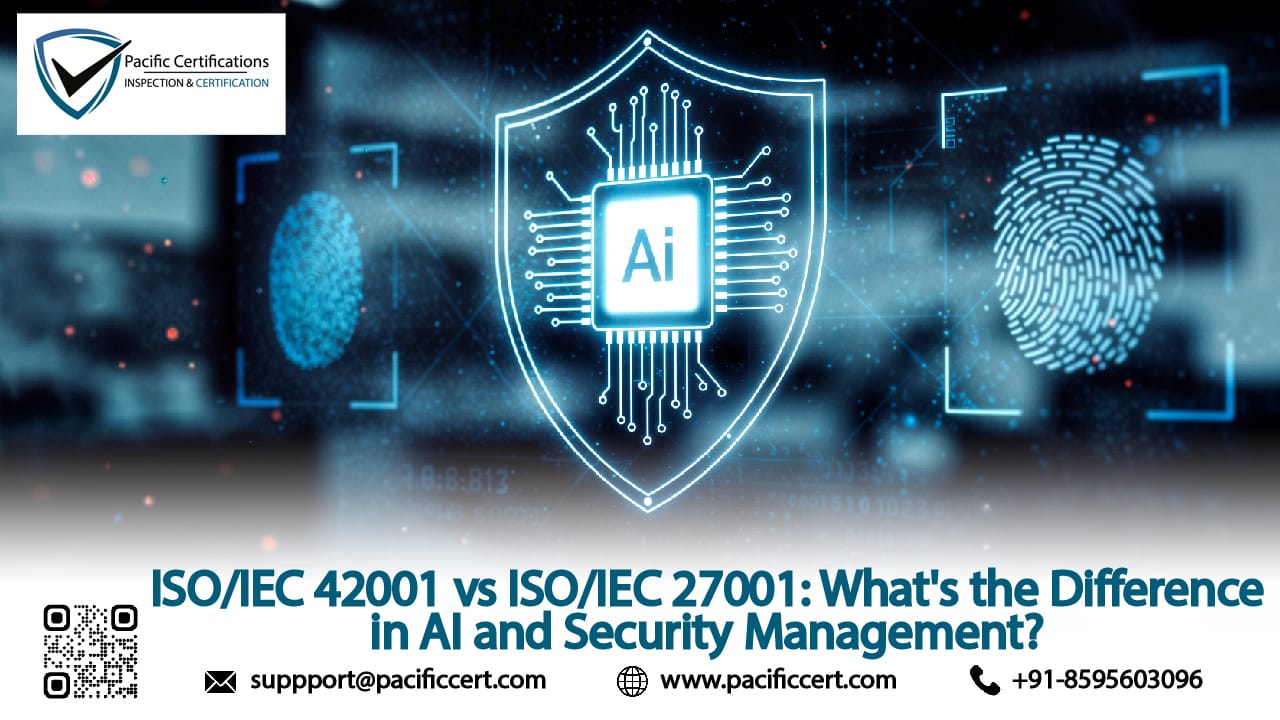
ISO Certifications for Charities and Non-Profit Organizations
ISO certifications can provide significant benefits for charities and non-profit organizations by ensuring quality, transparency, and accountability in their operations. ISO 9001 for Quality Management Systems helps non-profits align processes, improve service delivery, and increase donor and beneficiary satisfaction.
ISO 14001 for Environmental Management is valuable for non-profits focused on sustainability, helping them reduce their environmental impact through responsible resource management. Additionally, ISO 27001 for Information Security Management is crucial for protecting sensitive donor, volunteer, and beneficiary data, ensuring compliance with privacy regulations.
These certifications help charities build trust, improve performance, and increase credibility with donors, partners, and the community.
For ISO certification support, contact support@pacificcert.com.
Applicable ISO Standards for Charities and Non-Profit Organizations
ISO 9001:2015 - Quality Management Systems
ISO 9001 is the world's most recognized quality management system standard. It provides a framework for improving quality and ensuring that organizations meet the needs of their stakeholders.
ISO 14001:2015 - Environmental Management Systems
ISO 14001 helps organizations improve their environmental performance through more efficient use of resources and reduction of waste, this standard is particularly relevant for Non Profit with a focus on environmental issues or those looking to reduce their environmental impact.
ISO 45001:2018 - Occupational Health and Safety Management Systems
ISO 45001 provides a framework for managing occupational health and safety risks, for Non-profit organizations, this certification ensures a safe working environment for employees and volunteers, which is critical for their wellbeing and productivity.
ISO 26000:2010 - Guidance on Social Responsibility
ISO 26000 provides guidance on how organizations can operate in a socially responsible way. It is particularly beneficial for Non-profit organizations focused on social responsibility and sustainable development.
ISO 37001:2016 - Anti-Bribery Management Systems
ISO 37001 helps organizations prevent, detect, and respond to bribery. For charities, implementing this standard demonstrates a commitment to ethical practices and enhances trust among stakeholders.
Click here to find out more applicable standards to your industry
How Pacific Certifications can help
We at Pacific specialize in providing auditing and certification services for various ISO standards. Our role is to ensure that your organization meets the rigorous requirements of these international standards, thereby enhancing your credibility and operational efficiency.
Certification Process
- Initial Assessment: We conduct an initial assessment to understand your organization's processes and identify areas for improvement.
- Auditing: Our team of experienced auditors performs a thorough examination of your organization's practices against the relevant ISO standards. This involves reviewing documentation, conducting interviews, and observing operations.
- Certification Decision: Based on the audit findings, we determine if your organization meets the required standards. If successful, we issue the ISO certification.
- Ongoing Surveillance: To maintain certification, we conduct periodic surveillance audits to ensure continued compliance with ISO standards. It helps your organization stay on track and continuously improve.
In this year, the Non-profit sector continues to embrace ISO certifications as a means to enhance transparency and operational efficiency. Recently there is a growing trend among charities to adopt ISO 9001 and ISO 37001 standards to build donor confidence and mitigate risks associated with fraud and corruption.
Achieving ISO certification can significantly benefit Non-profit organizations by enhancing their credibility, improving operational efficiency, and gaining the trust of stakeholders.
For more information on how we can assist with your ISO certification needs, please contact us at support@pacificcert.com!
Requirements & Benefits of ISO certifications for Charity and Non-profit Organizations
Requirements for ISO Certifications
ISO 9001:2015 - Quality Management Systems
Requirements:
- Establish a quality policy that aligns with the organization's mission and objectives.
- Maintain documented information to support the operation of processes and demonstrate compliance.
- Top management must demonstrate leadership and commitment to the quality management system.
- Identify and address risks and opportunities that can affect the conformity of products and services.
- Monitor, measure, analyze, and evaluate the performance of the quality management system.
- Implement processes for continual improvement of the quality management system.
Benefits:
- Improved quality of services.
- Enhanced donor and stakeholder confidence.
- Increased operational efficiency.
- Better resource management.
- Stronger reputation and credibility.
ISO 14001:2015 - Environmental Management Systems
Requirements:
- Develop an environmental policy that includes a commitment to compliance and continual improvement.
- Identify and evaluate the environmental aspects and impacts of the organization's activities.
- Determine compliance obligations and ensure they are met.
- Set environmental objectives and develop plans to achieve them.
- Implement controls to manage significant environmental aspects.
- Monitor, measure, and evaluate environmental performance.
Benefits:
- Reduced environmental impact.
- Improved resource efficiency.
- Compliance with environmental regulations.
- Enhanced reputation with stakeholders.
- Potential cost savings from waste reduction.
ISO 45001:2018 - Occupational Health and Safety Management Systems
Requirements:
- Establish a health and safety policy that demonstrates commitment to a safe working environment.
- Identify and assess workplace hazards and risks.
- Ensure compliance with health and safety laws and regulations.
- Set and pursue objectives to improve health and safety performance.
- Implement measures to control health and safety risks.
- Provide training and ensure awareness of health and safety practices.
- Develop and maintain procedures for emergency response.
Benefits:
- Improved employee and volunteer safety.
- Reduced risk of workplace incidents.
- Enhanced organizational resilience.
- Increased trust from stakeholders.
- Lowered insurance premiums and legal costs.
ISO 26000:2010 - Guidance on Social Responsibility
Requirements:
- Adhere to principles such as accountability, transparency, ethical behavior, and respect for stakeholder interests.
- Engage with stakeholders to understand and address their concerns.
- Implement practices that promote sustainable development and social responsibility.
- Respect and promote human rights within the organization and its sphere of influence.
- Ensure fair labor practices, including health and safety, and conditions of work.
- Contribute to community development and social initiatives.
Benefits:
- Enhanced reputation and trust.
- Greater stakeholder engagement and support.
- Improved risk management.
- Contribution to sustainable development goals.
- Positive impact on society and the environment.
ISO 37001:2016 - Anti-Bribery Management Systems
Requirements:
- Establish and implement an anti-bribery policy.
- Conduct regular risk assessments to identify bribery risks.
- Perform due diligence on personnel and business associates.
- Implement financial and non-financial controls to prevent bribery.
- Establish mechanisms for reporting and investigating bribery incidents.
- Provide anti-bribery training and communicate the policy to all relevant parties.
Benefits:
- Demonstrated commitment to ethical practices.
- Enhanced trust and credibility with donors and stakeholders.
- Reduced risk of legal and financial penalties.
- Improved organizational governance.
- Strengthened reputation and brand integrity.
ISO certifications provide charity organizations with structured frameworks to improve quality, environmental performance, health and safety, social responsibility, and anti-bribery practices.
Pacific Certifications is accredited by ABIS, in case you need support with ISO certification for your Charity or non-profitable business, please contact us at support@pacificcert.com or +91-8595603096.
FAQ: ISO Certifications for Charity and Non-profit Organizations
What is ISO certification, and why is it important for charities and Non-profit organizations?
ISO certification is a formal recognition that an organization adheres to international standards of quality, efficiency, and sustainability, for charities and non-profit organizations, ISO certification enhances credibility, improves operational efficiency, and builds trust with donors and stakeholders.
Which ISO standards are most relevant for Non-profit organizations?
Key ISO standards include:
- ISO 9001:2015 for Quality Management Systems
- ISO 14001:2015 for Environmental Management Systems
- ISO 45001:2018 for Occupational Health and Safety
- ISO 26000:2010 for Social Responsibility
- ISO 37001:2016 for Anti-Bribery Management
How does ISO 9001:2015 benefit charities and Non-profit organizations?
ISO 9001 helps organizations improve service quality, streamline processes, and enhance stakeholder satisfaction. It provides a framework for continuous improvement and operational excellence.
What are the main requirements for ISO 14001:2015 certification?
ISO 14001 requires organizations to establish an environmental policy, identify environmental impacts, set objectives for improvement, ensure compliance with regulations, and continuously monitor and improve their environmental performance.
Why should a charity consider ISO 45001:2018 certification?
ISO 45001 ensures a safe and healthy working environment for employees and volunteers. It helps organizations reduce workplace risks, improve safety practices, and demonstrate a commitment to health and safety.
What is the focus of ISO 26000:2010, and how does it apply to Non-profit organizations?
ISO 26000 provides guidance on social responsibility. It helps organizations operate ethically, transparently, and sustainably, focusing on human rights, labor practices, the environment, fair operating practices, consumer issues, and community involvement.
How does ISO 37001:2016 support anti-bribery practices in Non-profit organizations?
ISO 37001 sets out requirements for an anti-bribery management system. It helps organizations prevent, detect, and respond to bribery, thereby enhancing trust and ensuring ethical conduct.
What are the trends for Non-profit organizations?
In 2024, there is an increasing trend towards adopting ISO 9001 and ISO 37001 standards among Non-Profit to enhance transparency, improve operational efficiency, and build donor confidence. Environmental sustainability, reflected in ISO 14001 certification, is also gaining prominence.
For more information on how we can assist with your ISO certification needs, please contact us at support@pacificcert.com.
Read More at: Blogs by Pacific Certifications



